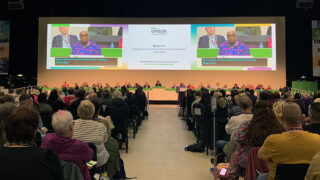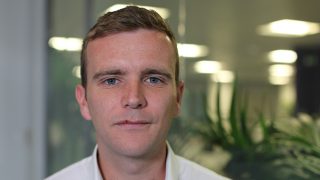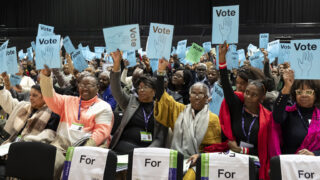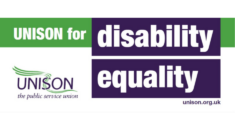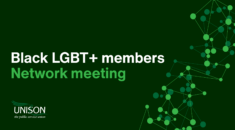On 16 October 2012 the Mary Seacole Leadership and Development Awards ceremony was held at UNISON Centre and attended by health minister Dan Poulter, as well as employer and trade union representatives.
Six nurses, midwives and health visitors from a range of disciplines received recognition for their contribution to Black communities. These included involvement in projects as diverse as:
- improving clinical engagement and outcomes for Black people with mental health problems;
- a pilot study of Hepatitis C among Eastern European migrant workers in Lincolnshire;
- improving sexual health outcomes for vulnerable under-18s in Black groups.
The awards were created in 1994 in honour of Mary Seacole’s significant contribution to nursing in the 19th century.
The awards give winners the opportunity to undertake a year-long project to benefit the health needs of people from Black communities.
There are two award programmes: The Mary Seacole Leadership Awards, which are up to £12,500 each, and the Mary Seacole Development Awards, which are up to £6,250.
UNISON jointly funded the awards with the Royal College of Nursing, the Department of Health, NHS Employers, the Royal College of Midwives and Unite.
UNISON general secretary Dave Prentis said: “I am really proud of what these nurses, midwives and health visitors achieved, and more so that they’ve done it at a time of real financial hardship for the NHS”.
The Mary Seacole statue appeal – the struggle continues
UNISON has contributed generously towards the campaign to build a memorial statue for Mary Seacole and has continued to pledge its full support for this campaign.
The statue will be erected in the gardens of St Thomas’s Hospital in London and it will be the second statue in the UK of a named black person. The only other such statue is that of Nelson Mandela.
Mary Seacole was born in 1805 as Mary Jane Grant to a Scottish father and a Jamaican mother. She was a herbalist and nurse who funded her own journey to the Crimea to treat injured soldiers on the war front.
This was after her application to join Florence Nightingale’s nursing team was turned down.
The aim of the Mary Seacole memorial is to recognise Mary’s great achievements and to remind the public of the importance of nursing and the heroic life she lived by giving her life’s work in support of others.
The total donation to the statue appeal has now reached £158,000. Planning permission has been obtained from Lambeth council. A further £342,000 is still needed to erect the memorial.
You can:
l keep alive Mary’s work by giving generously here to the campaign to build a statue in her honour;
l join the Friends of Mary Seacole and receive updated information on the campaign here;
l follow the campaign on Facebook and on Twitter;
l for more information, click here;
l to get involved with UNISON’s campaign, contact Gail Adams: gail.adams@unison.co.uk.


